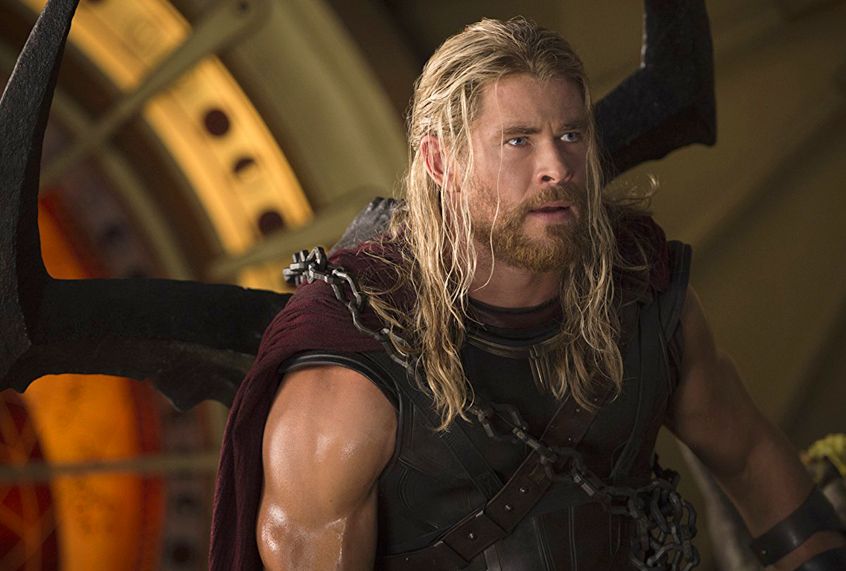I didn’t need to look at the early box office projections to know that “Thor: Ragnarok” was going to be a hit. As soon as I saw the giant lines curled up for yards outside my movie theater, I deduced that Marvel was looking at yet another of its runaway successes. Hell, even a quick glance at the positive reception to the “Thor: Ragnarok” trailers was a fair indication of positive audience response.
What I can say, having seen “Thor: Ragnarok,” is something more important — namely, that the movie deserves to do well.
That factor seems to get lost these days, doesn’t it? With all the talk of box office grosses and Rotten Tomatoes scores, it’s easy to care so much about whether a movie does well that we overlook whether it’s actually any good. Yet while the consensus among cultural cynics (i.e., the vast majority of culture writers) is that American moviegoers are easily duped by sub-pare fare, the handful of movies that have raked in the most dough and placed among the year’s Top 10 since May 2017 have been genuinely good movies.
“Wonder Woman.” “Guardians of the Galaxy: Vol. 2.” “Spider-Man: Homecoming.” “It.” “Despicable Me 3.” “Dunkirk.” I had the privilege of being able to see all of those films in theaters, as well as review many of them, and can safely say that the best of them (“It,” “Dunkirk”) were instant classics and the worst (“Despicable Me 3”) was still perfectly pleasant family fun.
Just as important, franchises that have previously done well despite their lack of quality have rightly suffered. Since 2007, it has been a cliche to bemoan that Michael Bay’s “Transformers” properties have made mint even though each installment was worse than its already-dreadful predecessor. Yet despite “Transformers: Age of Extinction” netting more than $1.1 billion worldwide in 2014 — as well as nearly $250 million domestically— “Transformers: The Last Knight” only pulled in $130 million domestically and just over $600 million overall worldwide.
I’m picking on the “Transformers” series because, well, it deserves the ridicule, but that trend seems to have applied across the board. The movies of summer 2017, for the most part, either underperformed or outright flopped, with Hollywood seeing a 14.6 percent drop in revenue since last year (one of the largest declines in recent history) and earning just slightly more money overall than it did in 2006 — eleven years ago.
Hallelujah, I say. If Hollywood looks at this trend and decides to make more movies like “Thor: Ragnarok” — which I found to be funny, action-packed and full of surprisingly layered character performances, a sentiment that seemed to be shared by my fellow theatergoers — then we’re better off seeing it join the rarefied ranks of the year’s financial winners.
This isn’t to say that “Thor: Ragnarok” was perfect. The best parts of the movie were the ones hinted at in the popular trailers: The budding bromance between Thor and The Hulk/Bruce Banner, the epic fight scenes, the tongue-in-cheek comedy style. That said, many of the movie’s best qualities are ones that other recent superhero films have done much better. It may have had a mildly subversive sensibility (major characters being interrupted by indignities during their most pompous moments, that sort of thing), but “Deadpool” was much wittier. The action scenes were impressive, but the souped-up spectacle has become quite numbing after audiences have been deluged with it year after year; by contrast, the comparatively stripped down action scenes in “Spider-Man: Homecoming” were more welcome.
Yet the good in “Thor: Ragnarok” far outweighed the bad. Special attention should be paid to Tom Hiddleston’s performance as Loki, which was particularly poignant as he continued his oddly touching rivalry with his brother Thor. As mentioned before, there were plenty of laughs, mainly because director Taika Waititi knew how to build comedy off of what we knew about these characters from previous movies as well as going for cheap laughs (although there were plenty of those as well).
I’d recommend “Thor: Ragnarok,” but it’s pretty clear that I don’t need to. Audiences seem to be smart enough these days to know a good movie when they see it, and to avoid a bad flick despite Hollywood’s best efforts to pull a fast one on them. In an era when our collective intelligence has been called into question by the presidency of Donald Trump and our sleepwalking toward global catastrophe (global warming, mass deaths among vital insects, etc.), this is a rare ray of hope that I find not only welcome, but long overdue.

